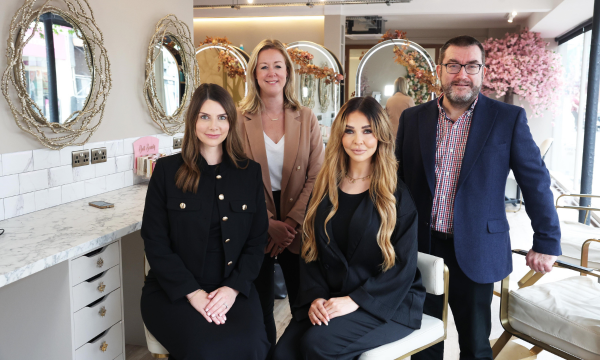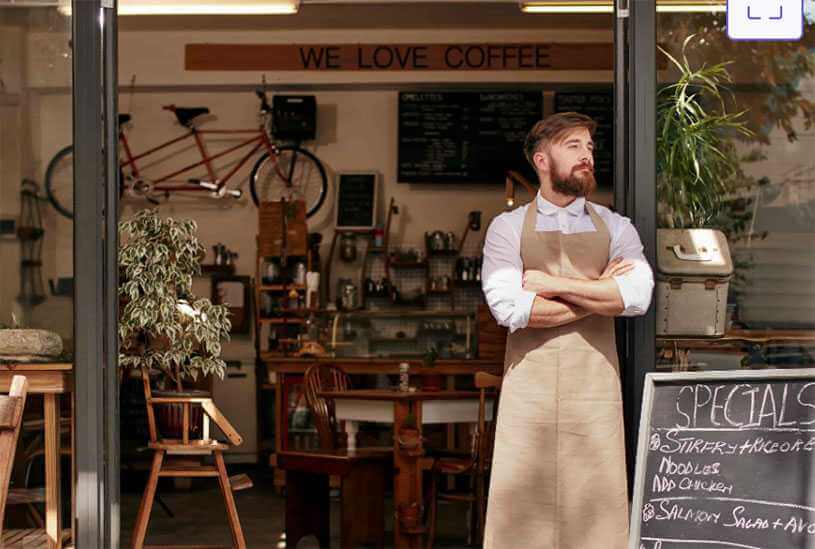One of Britain’s oldest surviving family businesses claims it could face ruin after Labour’s budget ‘torpedoed’ its operating model.
Jim Rankin, a sixth-generation owner of Rankin Brothers & Sons, a cork manufacturer founded in 1774, was blindsided by Rachel Reeves proposals, which he slams for ‘running completely contrary to the government’s ambitions for growth’.
Rankin, who is also the chairman of the Cork Industry Federation, detailed to MailOnline how the latest changes to employer National Insurance (NI) contributions and adjustments to inheritance tax will directly impact their cash flow, the affordability of human resources, and succession planning.
He’s blunt in his criticism: ‘The policies the government is putting forward run completely contrary to their own aims. How can they claim to be fostering growth when they’re slapping taxes on businesses that are already struggling?’
Business Property Relief (BPR) has up to this point allowed individuals to transfer trading businesses to the next generation free of tax, allowing family-owned businesses to carry on from generation to generation, but from 2026 all companies valued over £1million will be saddled with a 20 per cent inheritance tax when passed on to the next generation.
‘This change could seriously damage the future of family businesses like ours,’ Rankin explains.
‘We’ve been around for over 250 years, and part of that longevity is thanks to our careful succession planning. But these new policies mean that we’re going to have to reimagine everything. It’s going to force us to make decisions we never thought we’d have to make.’
Now he’s calling out what he sees as a flawed budget and a government that’s failing the businesses that drive the economy.
Jim Rankin, a sixth-generation owner of Rankin Brothers & Sons, a cork manufacturer founded in 1774, was blindsided by Rachel Reeves proposals, which he slams for ‘running completely contrary to the government’s ambitions for growth’


William Rankin, who founded Rankin Bros & Sons in 1774 (left) and John Rankin, Jim’s great, great Uncle (right)

Rankin Brothers & Sons was founded in 1774, at this time, the cork was shipped from Portugal to Scotland in the form of sheets, which were then cut into strips, then squares using special knives before finally being fashioned into cork stoppers
Rankin Brothers & Sons was founded in 1774, at this time, the cork was shipped from Portugal to Scotland in the form of sheets, which were then cut into strips, then squares using special knives before finally being fashioned into cork stoppers.
The family still owns Robert Rankin’s diaries from this period as he traveled to buy the cork, detailing his journey up the country on the back of a mule, staying in country inns frequented by vagabonds and sailors, and being terrified to sleep for fear of having his pockets picked.
By the 1800s the Rankins owned a manufacturing factory on the banks of the Tagus just outside Lisbon, as well as cork forests and estates.
Today, they manage 4500 acres of forestry in Portugal.
However, with the proposed tax hikes, Rankin worries he may have no choice but to sell assets or even bring in external investors in order to afford the changes.
‘Do we sell off assets just to meet these tax obligations?’ he asks. ‘It puts the whole future of the business at risk. And if we have to bring in outside investors or change our family’s role in the company, what does that mean for the next generation? We’ve been lucky to have our family involved at the executive level for six generations. That could all change in the blink of an eye.’

The new Rankin Cork Factory on the banks of the Tagus River in 1935 after old factory was destroyed by fire

Cork sailing down the Tagus River in Portugal in the 19th century

John Rankin, Jim’s great, great uncle at the cork farms in Portugal in the early 1900s
He estimates that nearly 5 million family-run businesses across the UK are facing the same dilemma: ‘This policy is absolutely devastating for family-owned companies. It could undo centuries of hard work.
‘These businesses are the backbone of the economy, and the government is making it harder, not easier, for us to keep going.’
When asked if he thought Reeves’ pledge to cut duty on draft booze in pubs in a bid to drive down costs for some punters, was beneficial he slammed the proposals as a red herring that did nothing to support the industry.
‘It’s theatre! Absolute theatre,’ Rankin claimed, ‘you add up all the rising costs—the National Insurance hikes, rents, and running a business—and that penny off a pint? It’s a joke. It’s just an illusion. It’s a tiny gesture that does nothing to address the real issues.’
The changes to employers National Insurance will be equally damaging: ‘National Insurance is a direct hit to cash flow. It affects our ability to hire people, train them, invest in them. And that’s the real engine of growth for our business.’

Former London head office in Bermondsey on the banks of the Thames in London where cork was unloaded until the company moved to Aylesbury

Cork forest in Portugal. For Rankin, the Labour government’s failure to deliver meaningful change isn’t just disappointing – it’s a massive opportunity missed

Cork being harvested from the trees. By the 1800s the Rankins owned a manufacturing factory on the banks of the Tagus just outside Lisbon, as well as cork forests and estates

Advertisement forRankin’s cork mats, describing them as the ‘finest carriage and bathroom mats’
The business has always prided itself on its workforce, but with costs rising and margins being squeezed, Rankin fears these tax hikes will undermine their ability to bring in the talent they need to move forward.
For Rankin, the Labour government’s failure to deliver meaningful change isn’t just disappointing – it’s a massive opportunity missed.
‘We had high hopes for the Labour government. We thought they’d bring real solutions, a way to reignite growth in the economy. But instead, they’re pulling the rug out from under businesses just like ours.’
‘If you’re serious about growth, you don’t impose these sorts of taxes. You give businesses the tools to succeed. You let us invest in our people, innovate, and stay competitive. But this? This is a torpedo to the very goals they set out in the election.’
And Jim Rankin insists they will adapt once again—but it won’t be easy. ‘We’ve faced challenges before, and we’ve always found a way through.
‘We’ll find a way to survive,’ he said as he joked, ‘but it’s going to take a lot more than a penny off a pint to make this work.’






